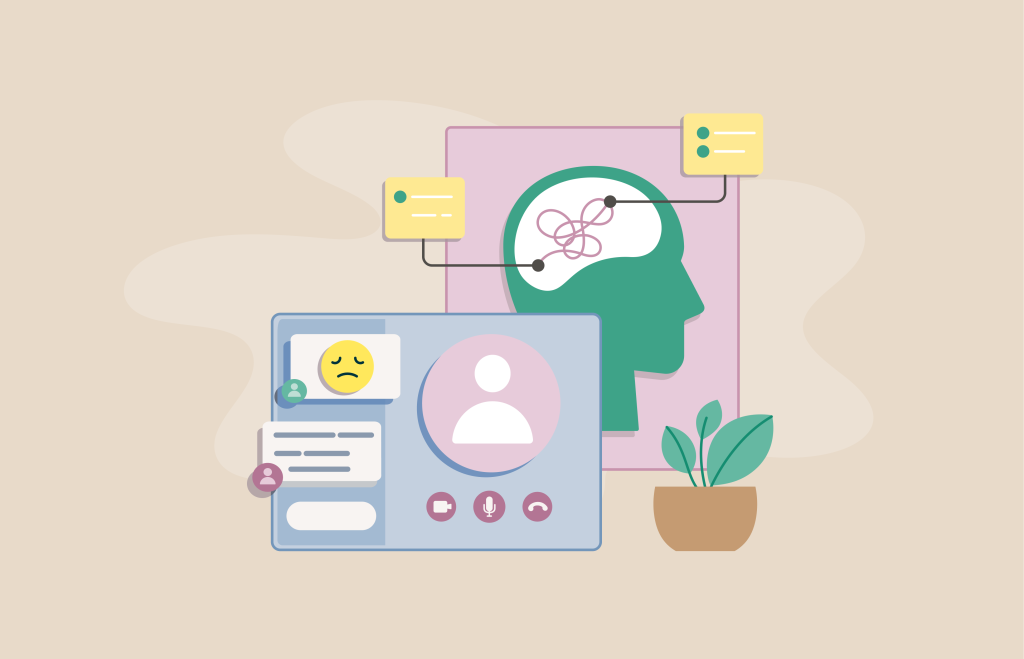Mental Models Form Personal Philosophy
Ella Knight July 28, 2025
In today’s fast-paced world, decision-making can feel overwhelming. With endless options available, how do we cut through the noise and make better, more informed choices? The answer lies in mental models — cognitive frameworks that help us navigate the complexities of life. This article explores how mental models form personal philosophies and why they are crucial for effective decision-making and personal growth.

The Foundation of Mental Models: What Are They?
Mental models are internal representations of how the world works. They are cognitive frameworks or tools that allow individuals to process complex information, make decisions, and solve problems. Think of them as shortcuts that our brain uses to interpret experiences and guide actions. These mental structures help us simplify the world, distilling vast amounts of data into manageable chunks.
In essence, mental models act as mental maps that shape our perceptions and influence our behavior. The more we build and refine these models, the better equipped we are to handle challenges and make informed decisions. They are especially important when it comes to personal philosophy because they govern how we perceive our values, ethics, and purpose in life.
Why Mental Models Matter in Personal Philosophy
Personal philosophy is essentially the collection of beliefs and values that guide our actions and decision-making. It answers fundamental questions like “What is the purpose of life?” or “What do I believe is right and wrong?” Our mental models directly influence the formation of this personal philosophy.
By adopting a diverse range of mental models, individuals are better able to challenge their preconceived notions, expand their worldview, and think critically about their beliefs. In doing so, they can reshape their personal philosophies, leading to growth and improvement. Here’s why mental models play such a pivotal role in shaping personal philosophy:
- Increased Clarity and Focus:
When you apply mental models to your life, it helps you understand complex situations more clearly. For instance, using the “first principles” model, which encourages breaking things down into their most basic truths, can help you see issues in a new light. This clarity allows for a more defined and focused personal philosophy, making it easier to act according to your values. - Enhanced Decision-Making:
Mental models serve as decision-making tools. By using models like “opportunity cost” or “cost-benefit analysis,” individuals can weigh their options more effectively, making choices that align with their goals and principles. This improves the consistency and integrity of their personal philosophy, as decisions made in alignment with one’s beliefs lead to greater satisfaction and peace of mind. - Growth and Flexibility:
A well-rounded personal philosophy doesn’t remain static. It evolves as you encounter new experiences and challenges. Mental models help facilitate this process. For example, the “growth mindset” model encourages the belief that abilities and intelligence can be developed over time. By integrating such models into one’s life, individuals can adapt to new circumstances, learn from failures, and refine their philosophy over time.
Key Mental Models to Enhance Your Personal Philosophy
While there are numerous mental models available, some have a more profound impact on the development of personal philosophy. Let’s take a look at three particularly impactful models that shape one’s perspective on life:
1. The Map is Not the Territory
This mental model, coined by Alfred Korzybski, asserts that our perceptions of reality are not the same as reality itself. Our maps, or mental models, are simplified representations of the world that help us navigate it. However, they are not the territory — they can be incomplete, flawed, or outdated.
By recognizing that our mental models are imperfect, we open ourselves up to new information and experiences. This is vital for the growth of our personal philosophy, as it helps us avoid dogmatism and encourages intellectual humility. The willingness to question our assumptions and beliefs leads to a more open-minded and flexible worldview.
2. Inversion
The inversion model is the practice of thinking about problems or situations in reverse. Instead of asking, “How can I succeed in this situation?” you might ask, “How can I fail?” This shift in perspective forces you to identify potential pitfalls and areas of weakness, helping you avoid costly mistakes.
By applying inversion to your life, you can better understand what doesn’t work, which directly informs your personal philosophy. It encourages a focus on what you should avoid, which can be just as valuable as understanding what you should do. This approach helps you establish boundaries, set realistic expectations, and lead a life in accordance with your values.
3. The 80/20 Rule (Pareto Principle)
The 80/20 rule posits that 80% of results come from 20% of efforts. This principle can be applied to nearly every aspect of life, from productivity to relationships. In the context of personal philosophy, this model encourages prioritization of what truly matters. It teaches that by focusing on the 20% of your actions that bring the most value, you can optimize your time, energy, and resources.
Applying the Pareto principle to your life can help clarify your core values and beliefs. For example, you might realize that a small number of activities or relationships contribute the most to your happiness and well-being. With this understanding, you can structure your life to align with your most important values, leading to greater fulfillment and purpose.
How Mental Models Influence Your Life
By integrating mental models into your daily life, you begin to see the world from a broader perspective. Here’s how these mental models can positively impact various areas of your life:
- Career: Mental models like “feedback loops” and “the hedgehog concept” (the idea that focusing on what you can do best leads to success) can guide career decisions. By applying these models, you can choose career paths that align with your core strengths and long-term goals.
- Relationships: Models like “reciprocity” (the idea that relationships should be mutually beneficial) and “social proof” (the tendency to follow the actions of others) can guide how you navigate interpersonal dynamics. These models help you understand the importance of healthy, reciprocal relationships, which are a cornerstone of a solid personal philosophy.
- Health: Models like “compound interest” (which states that small, consistent actions lead to big results over time) and “the halo effect” (the idea that one positive trait influences our judgment of others) can guide your approach to physical and mental well-being. These models encourage sustainable health habits and help you form a positive self-image.
Conclusion: The Power of Building Better Mental Models
Incorporating mental models into your life offers a pathway to refine your personal philosophy and enhance your decision-making abilities. Whether you’re striving for personal growth, navigating career choices, or simply aiming to improve your daily habits, these cognitive tools are invaluable. By continuously adapting and expanding your mental toolkit, you can lead a more informed, purposeful, and aligned life.
References
- Farnam Street (2016). Mental Models: The Best Way to Make Intelligent Decisions. Available at: https://www.farnamstreetblog.com (Accessed: 28 July 2025).
- Taleb, N. (2007). The Black Swan: The Impact of the Highly Improbable. Random House. Available at: https://www.amazon.com (Accessed: 28 July 2025).
- Munger, C. (1994). Poor Charlie’s Almanack: The Wit and Wisdom of Charles T. Munger. Donning Company Publishers. Available at: https://www.amazon.com (Accessed: 28 July 2025).







